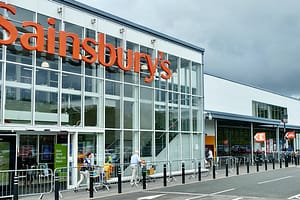Says a survey of 50,000 shoppers around the globe
Amid the intensifying battle for retail supremacy, Amazon has lost its long-held crown as the UK’s favourite retailer, according to this year’s Retail Proposition Index, released today by OC&C Strategy Consultants.
The Index surveys 50,000 shoppers around the globe, including 13,000 in the UK.
This is part of an ongoing shift in the habits of UK shoppers, who are increasingly prioritising quality over price and breadth of choice. The study found that quality perception was the single largest driver of rating change in the Index this year, especially among the over-35s who account for around 70 per cent of the total retail spend.
The impact of quality
The research reveals that single category retailers like Clarks, Body Shop and Ted Baker have been the most successful in improving customer perceptions of quality, and as a result they have gained ground against competitors. Those retailers who have focused more on price or breadth of choice have seen less traction. One of the largest ‘risers’ in this year’s Index has been clothing retailer Jack Wills, jumping from 101st place in 2016 to 18th in 2017. The brand’s success has largely been driven by improvements in consumer perceptions of its service, trustworthiness and quality.
M&S Simply Food, a long-standing member of the top-ten, is the clearest beneficiary of the rising importance of quality and was able to cement its position at the UK’s favourite retailer by also strengthening shoppers’ positive perception of its service and range. Particularly among the over-45s. Meanwhile, cosmetics retailer Lush has also continued its upward trajectory, impressing consumers with its excellent product and service offering.
Matt Coode, Partner at OC&C Strategy Consultants said: “M&S Simply Food has managed to build on its impressive track record of service and product range. Its rating as the UK’s favourite retailer is the clearest illustration that today’s British consumer demands quality above all else. The research this year reveals that shoppers are increasingly prepared to pay a premium for excellence, so retailers must think carefully about the level of investment in price and promotion versus quality and service to ensure their continued success.”
The growing expectation of quality at all price points has extended clearly into the discount sector. Discounters like Aldi, which has climbed from 20th place in 2016 to 7th in 2017, have managed to further enhance customer perception by improving their quality rating – which now rivals that of the Big Four supermarkets. Meanwhile, many of the general merchandise discounters, including Poundstretcher and Poundworld, have continued to deliver market leading price perception but not matched this in quality perception, and as a result seen a decline in their overall appeal.
This provides a clear demonstration that a winning strategy requires a holistic approach, and sets a clear focus for discounters over the coming years.
The generation game
The growing quality perception of leading specialist retailers has been especially pertinent among the over-35s age group. Scores achieved by service-led specialists like Waterstones and Boots have risen in comparison with Amazon, which saw its most pronounced drop in appeal amongst this group, dropping to 7th from its previous position as their favourite.
For Millennials, Amazon remains a clear favourite, who place greater emphasis on its breadth of product choice, dynamic retail offering and level of trust. It is also clear from the research that Millennial shoppers place more weight on low prices, ranges that are tailored to them and quality of mobile offer when making their retailer selections.
Balancing sophistication and trust
As the highest profile casualty of the Index this year, Amazon has proven that its dynamic retail model, which has enabled its astonishing success in recent years, isn’t without its challenges. Increasing levels of price transparency and added complexity around its delivery options have eroded perceptions of Amazon as a price and service leader, particularly causing it to drop in the value rankings from 2nd in 2014, to 16h in 2017. This was a contributing factor in losing its spot as the UK’s favourite retailer overall.
This serves to illustrate how retailers must be conscious that while improvements in systems and processes can improve delivery proposition, there must be a clear focus on the needs of the customer and retaining long-term customer relationships.
Coode added: “The results from this year’s Index should serve as a call to action for the retail industry. Clearly, while the Amazon model has delivered unparalleled success in recent years, it isn’t bulletproof. As shoppers increasingly seek out quality, it presents real opportunities for those retailers that are able to build strong trusted relationships with their target customers and offer the right product and the right level of specialism.”






Leave a Comment